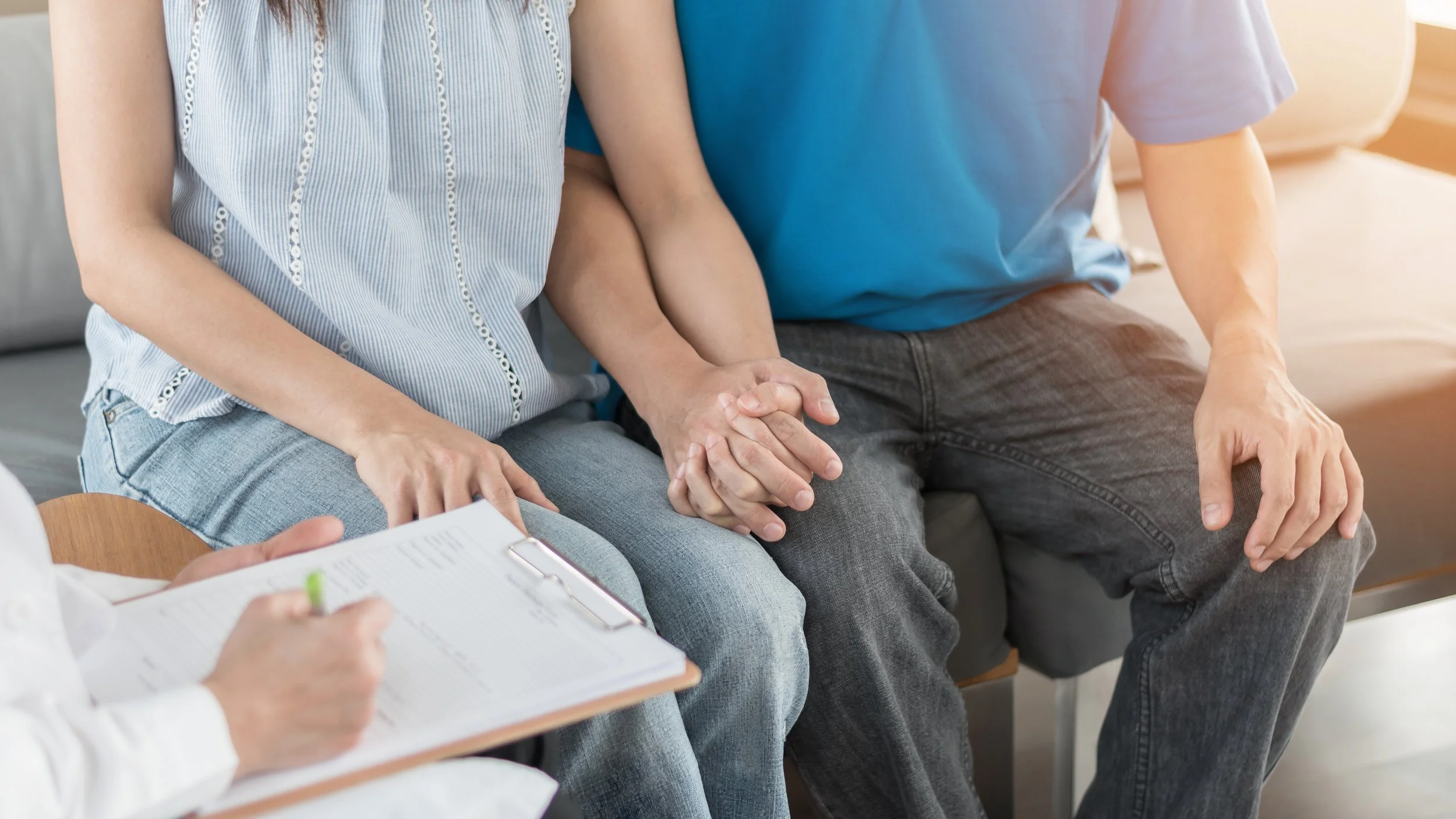5 Key Insights to Understand Couples Counseling (And Feel Confident Getting Started)
Introduction
Thinking about couples counseling can bring up a mix of hope, hesitation, and worry. You may want support but still feel unsure about what couples therapy actually is, how it works, or whether it can help your relationship.
These questions are entirely typical.
Many couples delay counseling because they’re confused about the process—what the sessions look like, what the goals are, and what the counselor actually does. Understanding the basics can make taking that first step feel much less overwhelming.
Below are five key insights to help you understand couples counseling so that you can approach the process with clarity, confidence, and a sense of support.
1. Couples Counseling Is a Form of Relationship Treatment
When we talk about couples counseling (or marriage therapy, relationship therapy, etc.), we’re describing the same thing: a structured, research-based treatment designed to strengthen your relationship.
Couples counseling helps when:
Your relationship is causing stress or emotional pain
Communication feels strained
You feel disconnected or misunderstood
Conflicts repeat without resolution
Life transitions have shaken your foundation
A trained couples counselor uses a specific theory and method to guide the process. Their job is to help you:
Understand what’s fueling distress
Reduce emotional pain
Improve daily functioning
Strengthen connection and communication
Build a healthier, more fulfilling relationship
You’re not expected to know how to fix these challenges on your own—therapy provides the roadmap.
2. Couples Counseling Is Based on Research and Proven Frameworks
Modern couples counseling is not guesswork. It’s grounded in decades of research on what helps relationships thrive and what leads to disconnection.
Some of the most well-known contributors include:
Emotionally Focused Therapy (EFT) – Susan Johnson, PhD
Focuses on emotional safety and secure attachment
Helps partners understand their deeper fears and needs
Highly effective for couples in distress
The Gottman Method – John & Julie Gottman, PhD
Identifies what differentiates happy couples from struggling ones
Uses practical, concrete strategies to reduce conflict
Helps partners build friendship, intimacy, and trust
Other approaches include Narrative Therapy, Imago, Cognitive-Behavioral Couples Therapy, and Developmental Models.
Each framework gives therapists:
A clear understanding of what causes relationship distress
Tools for guiding partners toward change
Interventions tested for safety and effectiveness
When interviewing therapists, asking about their training can help you choose someone who uses evidence-based methods—not guesswork.
3. Couples Counseling Focuses on Your Relationship (Not on Who’s “Right”)
The primary “client” in couples therapy is your relationship, not either individual.
Every relationship develops specific patterns—some helpful, others painful. Your differences, communication styles, vulnerabilities, and histories shape these patterns.
Your counselor will:
Observe how you and your partner interact
Identify patterns that create stress or distance
Interrupt unhelpful cycles (like criticism, defensiveness, or stonewalling)
Guide you toward healthier, more connected interactions
Model new skills so you can practice them between sessions
Why is this important?
Because many partners enter counseling feeling justified in their own perspective, actual progress happens when both partners take responsibility for how the relationship functions—and when both are supported in making changes.
4. Couples Counseling Helps Reduce Pain and Improve Daily Functioning
Relationship distress affects every part of your life. You may feel:
Anxious or on edge
Lonely or rejected
Depressed or disconnected
Distracted at work
Irritable with loved ones
Overwhelmed, hopeless, or stuck
Couples counseling helps you understand what’s causing pain—whether it’s communication challenges, attachment wounds, betrayals, mental health issues, or personality differences.
As you learn new patterns and regain a sense of control, you’ll often notice:
Less stress
More emotional stability
Better communication
A more profound sense of partnership
Increased confidence in the relationship’s future
Feeling better in your relationship leads to feeling better in your life.
5. Couples Counseling Has Three Main Phases
Understanding the structure makes the process feel less mysterious and more predictable.
Phase 1: Assessment (3–5 Sessions)
Your therapist will gather a complete picture of:
Your relationship’s history
Current sources of stress
Individual backgrounds and strengths
Interaction patterns
Shared and individual goals
You’ll receive feedback about what’s happening in the relationship and what needs to change.
Phase 2: Active Therapy (3–12 Months)
This is where most of the work happens. Your therapist will:
Guide conversations
Teach skills and strategies
Interrupt hurtful patterns
Support emotional repair
Help you practice new ways of interacting
Sessions are active, structured, and collaborative—not passive listening.
Phase 3: Maintenance & Support
After significant progress, couples often shift to biweekly or monthly sessions. Some stay connected every few months to maintain momentum or navigate new life transitions.
It’s normal to return for support during stressful times. Healthy couples use therapy as a resource—not a last resort.
Conclusion
Couples counseling is a thoughtful, research-supported process designed to reduce pain, rebuild connection, and strengthen your relationship. With the proper framework and a trained couples counselor guiding you, you can gain clarity, hope, and practical tools for lasting change.
Now that you understand how couples counseling works, your next step may be choosing the right therapist for you and your partner. A compassionate, well-trained counselor can make all the difference in your experience. Read “5 Must-Ask Questions Before You Start Couples Therapy.”
Do you have any questions about couples counseling? Please email me at tmatyukhin@tmatmcs.com.

